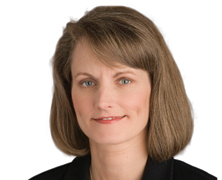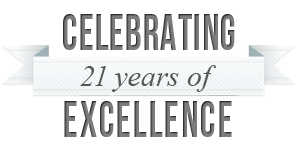I was well into my career before I understood what a mentor was or why having one was important, but I always had strong, positive role models from whom I learned how to thrive in business and in life. The most important of these was my dad, who had a value statement for every situation. I am certain that I rolled my eyes privately at least once when he would launch into another life lesson, but it is surprising how useful those values continue to be. I share credit for much of my personal and professional success to the values I learned from my dad, including perseverance, hard work, humility, empathy, generosity of time and resources, and a passion for people.
As a businessperson who chose banking and mortgage finance as my career, it was challenging for me to rely solely on the values my dad taught me in my young life. He was an entrepreneur and a civil engineer with very little exposure to the banking world or even working in an office. I knew I needed mentors that understood this business environment and I especially wanted to have successful woman mentors.
Who are the role models I have most admired? What distinguished each of my mentors from any other successful person? For me, it isn’t about having just one mentor. Mentoring takes many forms. Frequently I relied on multiple mentors who could guide me across professional and personal issues. I needed to make a connection through shared values, but I also needed diversity of thought, knowledge, and expertise to ensure that I was truly learning from these mentors. I did not need validation, I needed perspective. And finally, I wanted mentors that were enthusiastic about sharing their knowledge or expertise. I have been fortunate to know many such women and men and am truly grateful for their gifts.
Interestingly, the opportunities for me to mentor others began to emerge at about the same time that I was seeking mentors for myself. It was a big breakthrough for me when I realized that mentoring is a two-way street of sharing and engaging that yields a deeper and richer network of people who enthusiastically help one another. This shared enthusiasm and passion for people serves to increase the energy level among all participants in a successful mentoring environment—and as I truly believe, leads to better business results.
How has education affected your career?
Education is essential to success and it cannot stop when you graduate. Business never stops evolving, so you must continue to learn if you want to succeed.
What does it take to succeed and stay competitive in your position/field?
Customer relationship management is all about empathy. I try to put myself in the shoes of my staff, customers, and management team in order to generate the best outcomes for everyone.
Has discrimination affected you as a woman in the workplace? How did you deal with it?
I have been fortunate to work with people who see the potential in everyone. I have encouraged others to only work in an environment where they can thrive and be who they are.








As a mentee of Jennifer’s I can specifically speak to this topic. Jennifer has provided me with genuine and honest feedback, offered career guidance and allowed me the opportunity to ask difficult questions. In particular, she helped me to think through “perceived” resume challenges in a more motivating and positive light. She is an advocate for many employees at Fannie Mae and always provides insightful feedback when solicited. Jennifer is a true thought-leader and many of us are fortunate to have crossed paths with her. Jennifer, thank you for all that you do!